Apocalyptic prophecy and visions of doomsday have preoccupied the minds of many since the Persian Empire and perhaps earlier. In the first quarter of the 19th Century, apocalyptic ideas in fiction changed from those of religion to something a little more man made. The first post-apocalyptic novel in the form that we recognise it was The Last Man (Le Dernier Homme) by Jean Baptiste Cousin de Granville. The two World Wars and the bombing of Hiroshima and Nagasaki were also responsible for many of the classics within this genre.
Post-Apocalyptic Books are once again experiencing a bit of a resurgence. This is largely due to mainstream successes such as The Road by Cormac McCarthy, World War Z by Max Brookes and the popularity of the 2012 myth of the Mayan apocalypse.
It would be easy to think that this is all doom and gloom but it’s not. Take a closer look at the stories these books are telling... this is in fact a magnificent display of our will to survive no matter what and how we strive to rebuild in the face the adversity.
As with any science fiction niche or subgenre, it can be difficult to know where to start so we at SCI-FI-LONDON, with one eye on the upcoming Dark Societies Panel at waterstones, Piccadilly, have put together this little list, a kind of 'starter for 10' if you like. It is by no means definitive and in no particular order but be warned, reading this stuff is addictive!
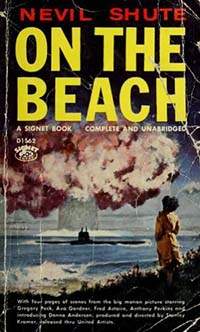
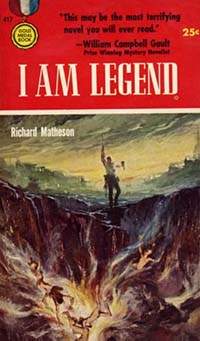
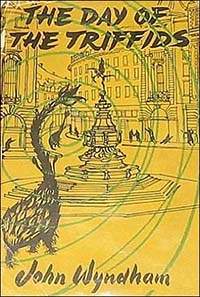
A mysterious plague of blindness strikes the entire world which leads to the rise of an uncontrollable and aggressive plant, the Triffid. Bill Mason and Josella make their way across London and into the countryside to start rebuilding their lives whilst avoiding the various military factions that start to form.
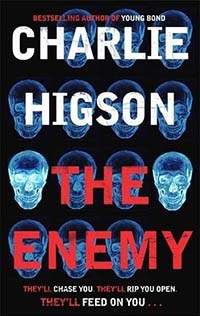
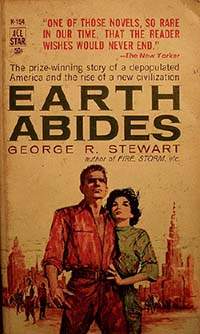
Isherwood descends from his cabin to find the human race has been wiped out by a merciless plague. A book set across his lifetime charts his journey as he tries to rebuild society and his slow realisation that the old world no longer has relevance. Alongside the main story, there is a beautiful parallel narrative showing us how the world changes without humans.
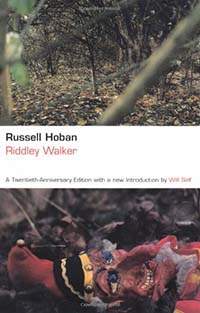
Two thousand years after a nuclear war has devastated civilisation, Riddley Walker phonetically narrates his story in a pidgin Kentish English. The world has now regressed to a state similar to Iron Age England and religion has become a fusion of church and state around the legend of St Eustace, its story told in puppet shows similar to Punch and Judy.
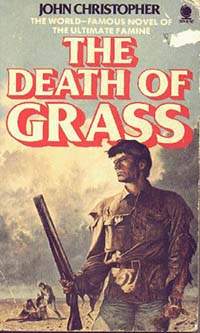
A new virus has infected rice crops in Asia causing massive foods shortages. As the virus mutates, it infects staple grass crops such as Wheat, Sugar and Barley causing world-wide famine. As anarchy descends over England, John Custance and his family make their way across the country, wanting to reach the safety of his brother’s potato farm.
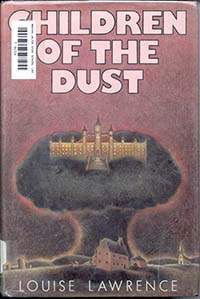
The first bombs dropped on Hamburg and Lenningrad, her headmaster warned that a full scale nuclear attack was imminent. Barracaded in their tightly sealed kitchen , Sarah and her family had to make do while dreading the radioactive fall-out that was sure to get them. In a brave attempt to protect her family, Sarah braves the wasteland to find a safe place for her sister guaranteeing her survival. Published in 1985, the book details three generations of a family in the aftermath of a nuclear war.
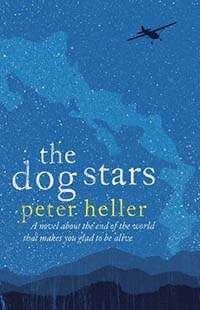
Traumatised by the death of his wife following a global pandemic, Hig doesn’t have a lot to live for. He carves an existence for himself with his loyal dog, Jasper on a deserted air strip in Colorado. Tormented by a call he received on the airport radio, he sets off in his Cessna to find other survivors.
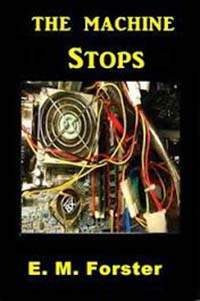
Who would have thought that the man who wrote A Passage to India would also have written a post-apocalyptic/dystopian short story. Having lost the ability to survive on the surface of the Earth, humans were driven underground living in small cells where every function has been automated. But happens when the machine stops?
Enjoy!
Written by Leila
Posted by Robert